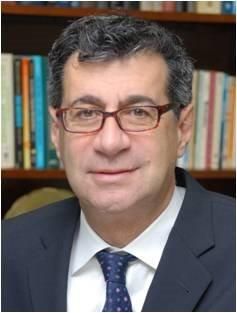
David P. Hajjar
Dr. David P. Hajjar received his Ph.D. in 1978 from the University of New Hampshire, and then became a post-doctoral fellow at both Cornell University Medical College and the Rockefeller University. In 1981, he joined the Medical College faculty, and was appointed a full tenured professor in 1989 – one of the youngest in the history of the Medical College. In 1997, he was appointed Dean of the Cornell University Graduate School of Medical Sciences and was the H. T. Rhodes Distinguished Professor of Biochemistry and Genetics. At that time, he became a member of Cornell Medical College’s Board of Overseers. In 2000, he was appointed Vice Provost of the Faculty. In 2003, he was appointed Executive Vice Dean at the Medical College, and in 2007, Executive Vice Provost. . Dr. Hajjar is a Fellow of the Royal Society of Medicine and a Fellow of the AAAS. Dr. Hajjar has received the prestigious Federation of American Societies of Experimental Biology (FASEB)'s Warner Lambert/Parke Davis Award in 1991 for his discoveries on the role of herpes viruses in the pathogenesis of vascular disease. In 2003, Dr. Hajjar received the Chugai Award, which is presented to a member of the American Society of Pathologists (FASEB) who has a distinguished scientific career, who exhibits both excellence in mentoring and education and outstanding research achievements in experimental and investigative pathology. Dr. Hajjar has trained over 30 students and postdoctoral fellows. He has also been the recipient of several other awards from the American Chemical Society, the American Heart Association, and the Andrew Mellon Foundation. In February 2011, the Fulbright Commission, with approval of the US State Department, named Dr. Hajjar to one of its premier senior scholarship programmes – the Fulbright Specialist Program. As a Fulbright awardee, Dr. Hajjar worked in Qatar in concert with 5 the dean of Weill Cornell Medical College–Qatar, and the dean of the College of Arts and Sciences of Qatar University, to strengthen the biomedical research and educational enterprise of Qatar University’s College of Arts and Sciences and to develop opportunities for collaborations between Weill Cornell Medical College–Qatar and Qatar University. In 2013, he accepted a position as a senior fellow at the Harvard-Kennedy School of Government to study diplomacy in the science, technology, and public policy programmes in order to further his work on higher education in the Middle East.